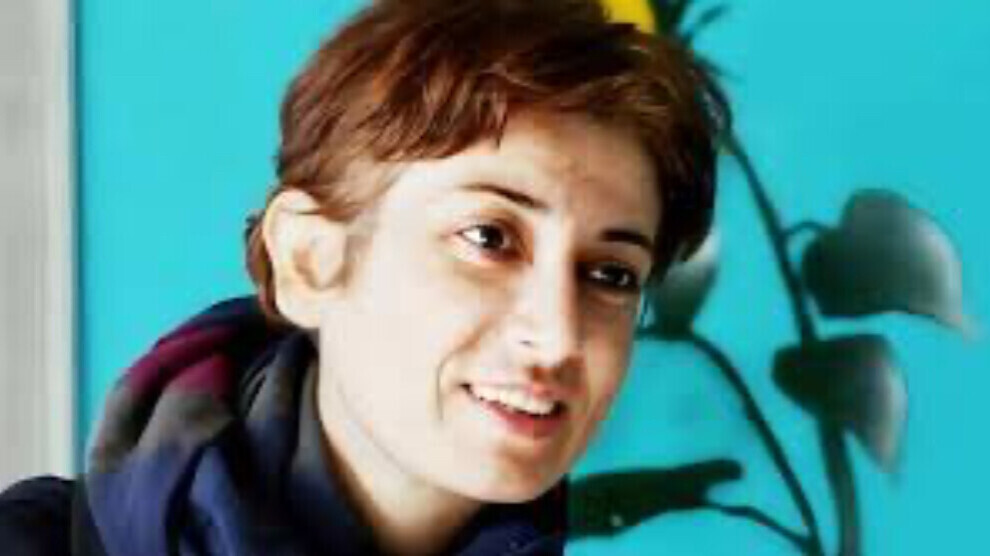Pakshan Azizi: A Symbol of Kurdish women’s resistance against oppression
Pakshan Azizi, a social worker, women’s rights activist, and a prominent figure in the fight against gender and ethnic discrimination, has been sentenced to death in Iran.
Pakshan Azizi, a social worker, women’s rights activist, and a prominent figure in the fight against gender and ethnic discrimination, has been sentenced to death in Iran.

Pakshan Azizi, a social worker, women’s rights activist, and a prominent figure in the fight against gender and ethnic discrimination, was born in Mahabad.
For years, she advocated for victims of domestic violence and worked on empowering women. Pakshan Azizi organized awareness programs for women in Kurdish regions, educating them about their rights.
She also participated in cultural and social initiatives promoting gender equality and children’s rights. As a key member of local organizations, she worked tirelessly to amplify the voices of marginalized women and minorities.
Arrest and charges
In August 2023, Pakshan Azizi was arrested at her home by security forces. She was initially charged with offenses like "rebellion against the regime" (Baghi) and "propaganda against the state." Following an opaque trial, the Tehran Revolutionary Court, presided over by Judge Iman Afshari, sentenced her to death.
Reports indicate that Azizi endured severe physical and psychological torture during her detention in the Ministry of Intelligence's facilities to extract false confessions for crimes she did not commit.
Prison Conditions
Pakshan Azizi is currently held in the women’s political ward of Evin Prison under dire conditions:
Denied Legal Representation: Her lawyer was only allowed access to her case after the interrogation phase was completed.
Lack of Medical Care: Azizi suffers from physical issues due to torture but is denied adequate medical treatment.
Restricted contact with family: She has limited access to phone calls and is deprived of regular family visits.
Reactions and case significance
The death sentence for Pakshan Azizi has sparked widespread protests inside and outside Iran. Numerous human rights organizations, including Amnesty International and Human Rights Watch, have condemned the ruling and called for its immediate reversal.
Her fellow inmates in Evin Prison have staged several sit-ins and hunger strikes to show solidarity and protest the sentence.
Pakshan Azizi’s case has become a symbol of the systemic oppression of Kurdish women and the use of the death penalty as a tool to intimidate dissenters. This case reflects state policies targeting women’s and ethnic minorities' rights, aiming to silence their voices.
Despite the repression, Azizi and others like her have inspired resistance movements advocating for women’s rights and freedom both in Iran and globally.
Demands and expectations
Human rights activists, women’s advocates, and defenders of minority rights have emphasized in various statements the urgent need for international action to prevent her execution. These demands include:
Diplomatic pressure on the Iranian government to revoke death sentences.
Support for women’s and ethnic minority movements in Iran.
International campaigns to abolish the death penalty and free political prisoners.
Conclusion
Pakshan Azizi is a symbol of Kurdish women’s fight for justice, freedom, and equality. Her case highlights blatant human rights violations and the state’s use of violence to suppress dissent.
The "Women, Life, Freedom" movement, which emerged from Iran's protests, represents the determination of Iranian women and men to end oppression and authoritarian rule.
Together with other courageous imprisoned women, Pakshan Azizi continues to inspire society and reminds us of the urgent need for global solidarity to achieve justice and freedom.